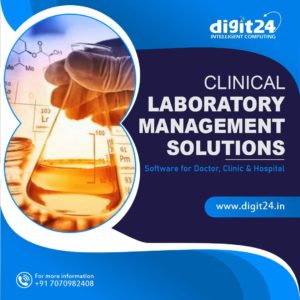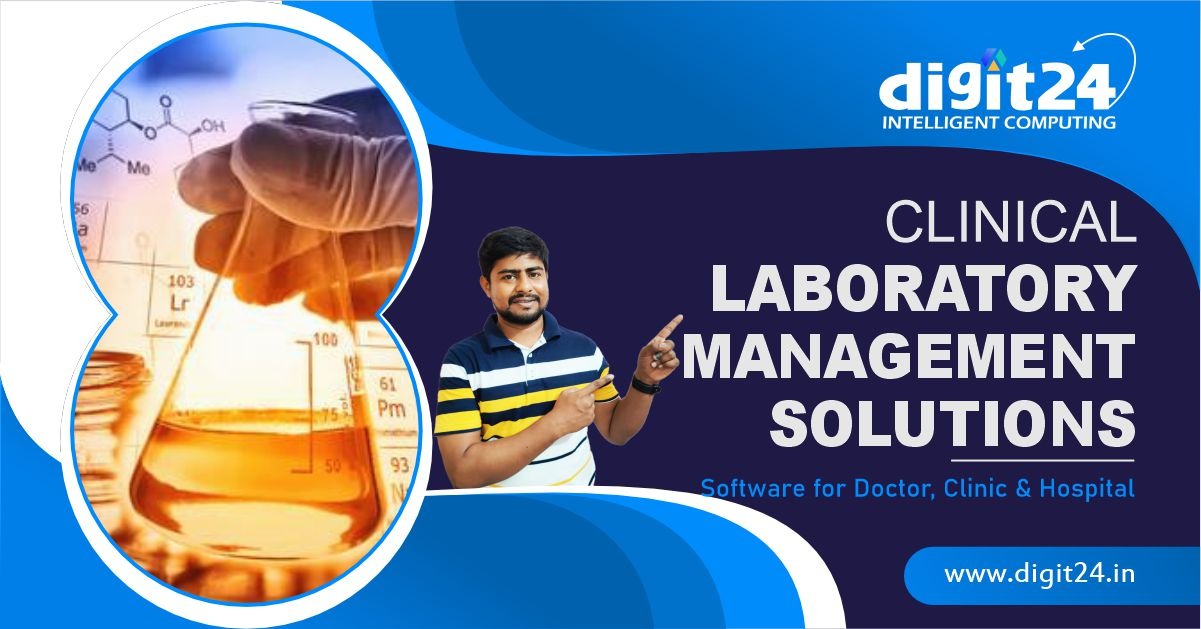Healthcare systems rely on the right clinical laboratory management software to efficiently manage resources and deliver a diagnosis without the hassles that result from ineffective documentation, delays or declined bills. Thus, advanced clinical laboratory solutions adopt the system of Revenue Cycle Management (RCM) to automate the tasks related to various stages of creation and remittance of medical bills.
 To Get Best Pathology Lab Management Software : CLICK HERE
To Get Best Pathology Lab Management Software : CLICK HERE
Lab Problems and Solutions: Billing
Revenue cycle management (RCM) includes financial services that automate the process of collecting revenue to identify and generate medical bills, process claims and payments, and test services provided.
Thus RCM begins with a patient’s first encounter with the health care system and ends at the point where the hospital or diagnostic laboratory is fully paid for their services. The seven stages of RCM include.
- pre-registration
- registration
- charge capture
- insurance follow-up
- patient collections
- claim submission
- remittance processing
Each of these steps identifies and processes patient data for making an insurance claim, and follows up on the claim until the final payment is made.
However, hospitals and diagnostic laboratories face some common problems with clinical laboratory management. Medical laboratories handle large amounts of patient data that is managed by a Laboratory Information Management System (LIS or LIMS) so that samples can be processed and results delivered in a timely manner. A medical laboratory requires laboratory information software solutions to process sensitive patient data prior to setting up a billing service. Traditionally, two different software solutions were used: the LIS solution for handling patient information and laboratory data; and RCM solutions for billing purposes. Thus, in most cases, the billing process will start only after the test results are ready. This often leads to a denied claim due to incorrect or missing patient information. An effective RCM system minimizes rejected claims by getting clean claims information upstream, which translates into more clean claims and more revenue downstream.
Inadequate staffing or equipment failure can increase the cost of running a laboratory. Thus a clinical laboratory software solution is ideally suited to the billing requirements and risk estimation of the laboratory.
Uncollected revenue reduces the annual revenue generated for a laboratory due to the absence of automated software solutions. These include delays in submission of claims, insufficient documentation, errors in calculation of basic costs, overheads and margins, and incorrect implementation of the clinical lab’s coding system (where a clinical sample incorrectly matches the test’s code). ) may be due to. These errors can be reduced through automated laboratory medical billing solutions.
Integrating Billing with Laboratory Management Software
An efficient lab software solution for billing services addresses various challenges during insurance capture, claims and collection process.
When a patient enters the healthcare system, the medical staff captures their information on the laboratory’s management software, which verifies the patient’s scheduling and eligibility. The system can also estimate charges so that a transparent billing process is maintained.
Efficient billing software helps lab managers to resubmit rejected claims through real-time monitoring of claims status. Laboratory RCM solutions in advanced software also generate reports that need to be submitted every three years to the Centers for Medicare and Medicaid Services (CMS) in compliance with financial regulation policies.
The billing system can also be integrated with the laboratory’s laboratory management system, thus improving the staff’s ability to manage and track various processes from a single interface. It can integrate with patient electronic health records (EHR), improving access and tracking of patient information within the organization.
The laboratory information system should, at the initial stage, capture the various details about the eligibility of the patient to claim the insurance so that questions regarding payment do not come up at the later stages. The LIS claim management solution should also be able to track the progress of an insurance claim, and the billing software should generate timely reminders to help manage multiple payment schedules.
A health institution that has a strong infrastructure for Information Technology (IT) can easily install and maintain laboratory management software for billing.
The Role of Laboratory Billing Solutions
A laboratory billing solution ensures smooth functioning of the laboratory by helping the employees to work faster through digitization of RCM. Medical Laboratory Solutions leverages the information gained during patient pre-registration and registration processes and finally to file an insurance claim.
Billing software automates the filing process and assists lab billing managers in follow-up on insurance claims. Most importantly, a lab billing solution eliminates discrepancies during claims processing, when a testing service may mismatch a medical code due to human error. Lab billing solutions validate insurance claims and ensure the insurance status of the patient. Lab managers have to take into account the various stages of processing patient samples, as well as track insurance claims to ensure a smooth RCM.
Transparent billing policies and solutions help both patients and laboratories manage their resources effectively. Billing policies need to be displayed on the testing service’s website, and the patient must be informed during their pre-registration. The patient should also be informed about the various accepted payment methods so that they are ready to provide their insurance details during the registration process.
Co-payments may be collected upon patient registration, and referral is required when the patient requires the medical attention of a specialist. The registration process should also include the steps to provide benefits and record the patient’s signature on the required forms. These ensure smooth handling of insurance claims. Claims are ‘scrubbed’ prior to submission, where advanced diagnostic laboratory solutions are implemented by a dedicated revenue cycle team who assess testing fees, ensure there are no code mismatches and recommend Structures the claim by providing test results to motivate the process.
Advanced Diagnostic Laboratory Solutions
High throughput laboratories may find it easier to outsource their billing to a third-party service that will be up to date with the latest industry practices and thus can expedite insurance claims. Pathology Lab solutions for billing can be integrated with the LIS of the lab so that employees can access data from a single platform. The data will be stored in the cloud or on servers, ensuring its reliable access within institutions.
Labs can also extend their reach to improve their RCM. This applies to laboratories built on a large scale, which find that their testing capacity exceeds demands. Especially during the COVID-19 crisis, many laboratories maximized their margins by providing testing services for the virus. Thus advanced laboratory solutions must be scalable to meet the high demands in times of crisis.
Some laboratories require specific software that meets their specific demands, such as highly specialized procedures and diagnostics, or billing dynamics. Pathology solutions must be responsible for the large influx of patient data and samples, and thus may benefit from a third party vendor.
Implementation of advanced solutions helps clinical laboratories to ensure that a patient is eligible for an insurance claim even before their samples are processed. This saves time and prioritizes claims for faster approval and reimbursement, ultimately improving patient care.
A third-party billing service may provide an application programming interface (API) that connects their billing service solution to the Lab’s existing LIS or LIMS software solutions. It can also be combined with Electronic Health Record (EHR) and Electronic Medical Record (EMR) systems.
Finally, financial solutions provided by third party experts ensure efficient processes such as claims cleaning, follow up on insurance claims, and generate financial reports that meet compliance requirements, as well as generate revenue for laboratories .

